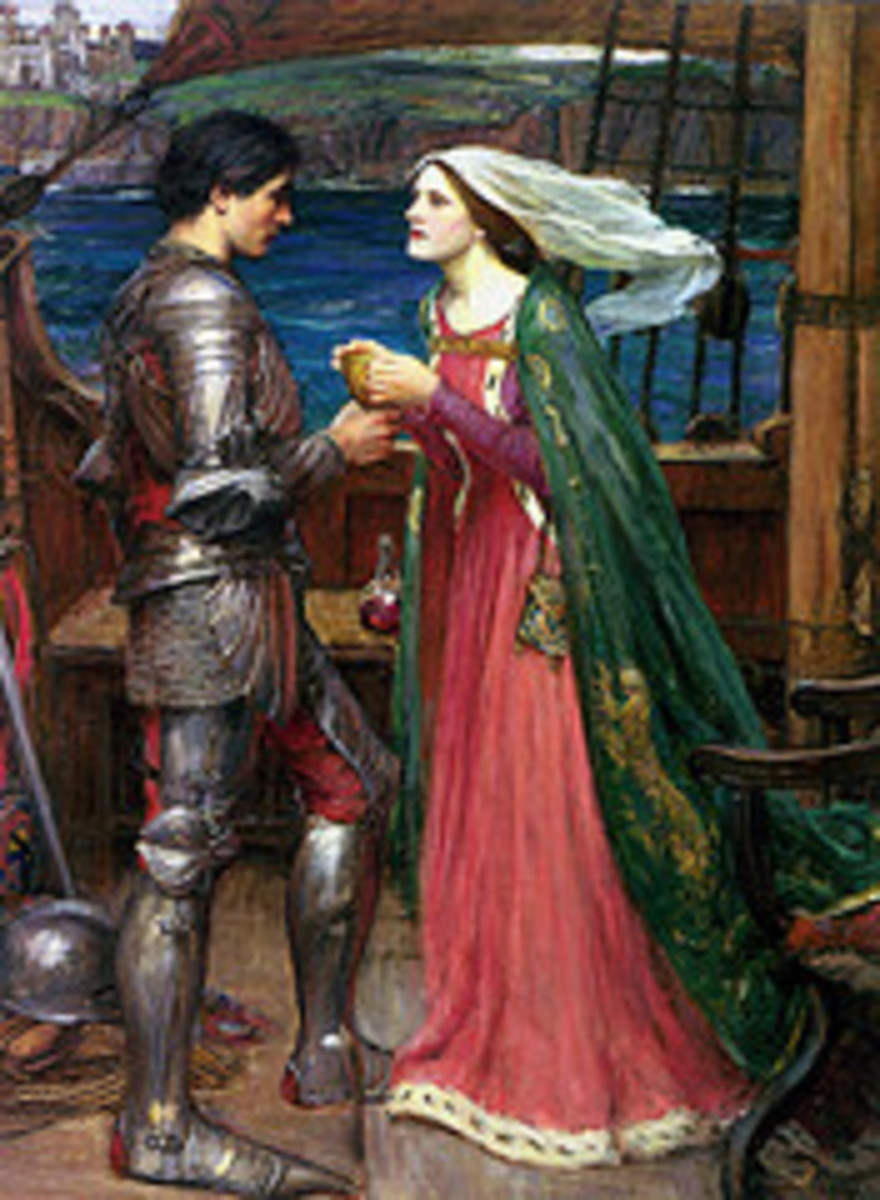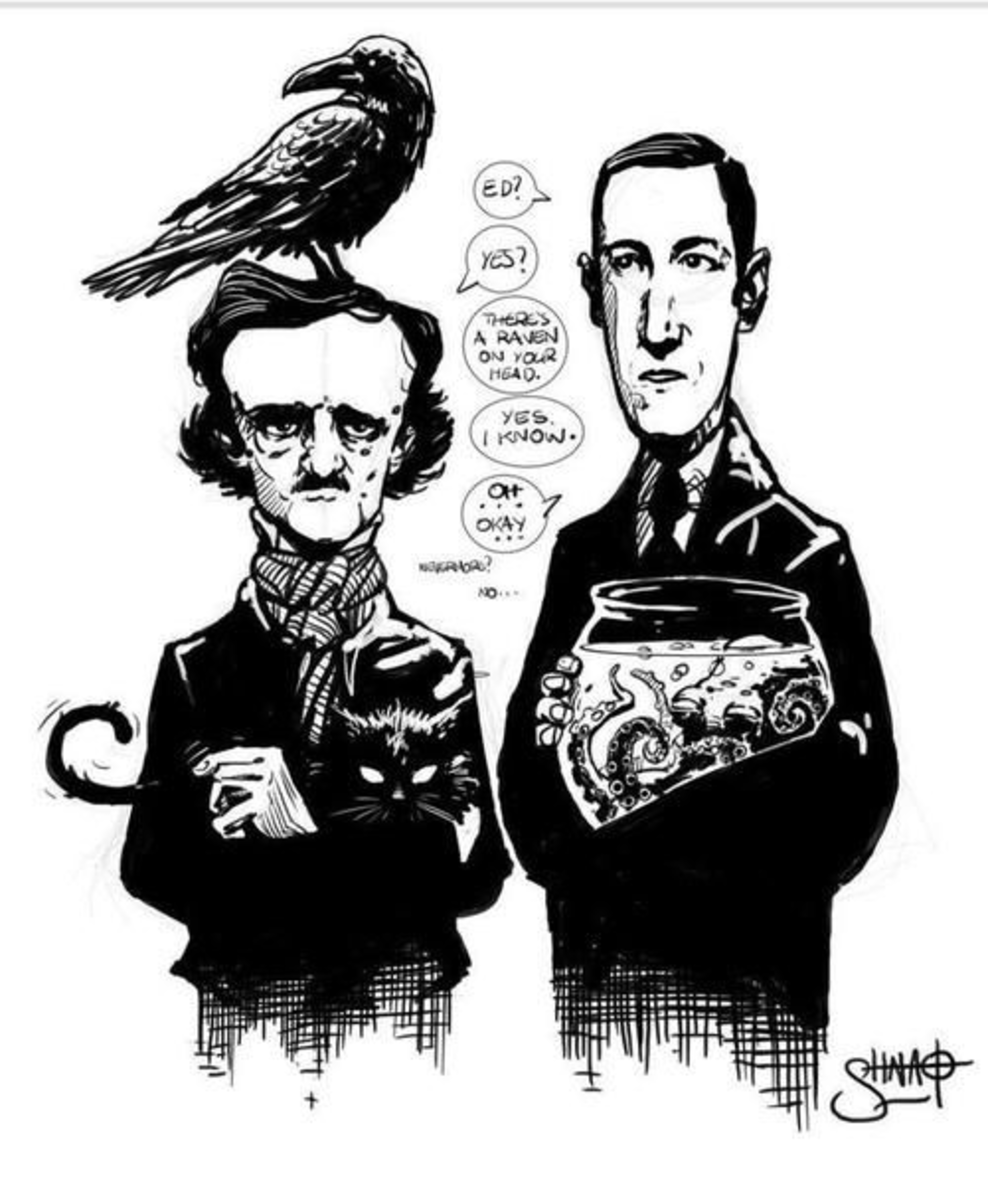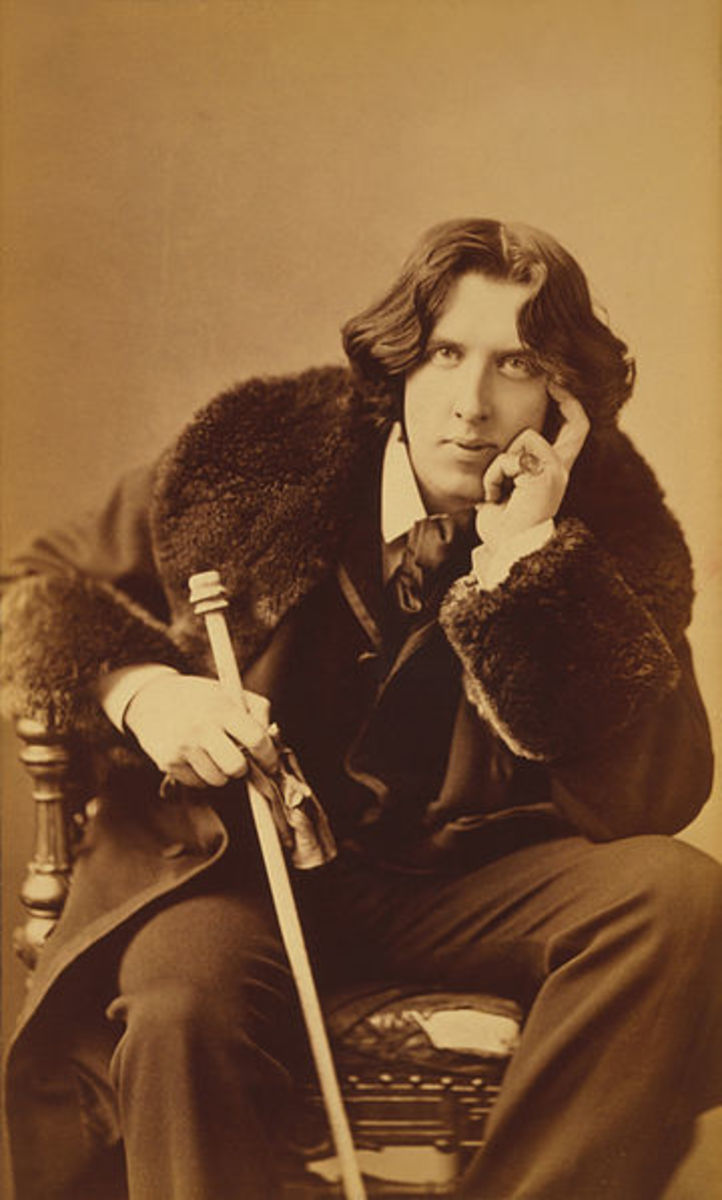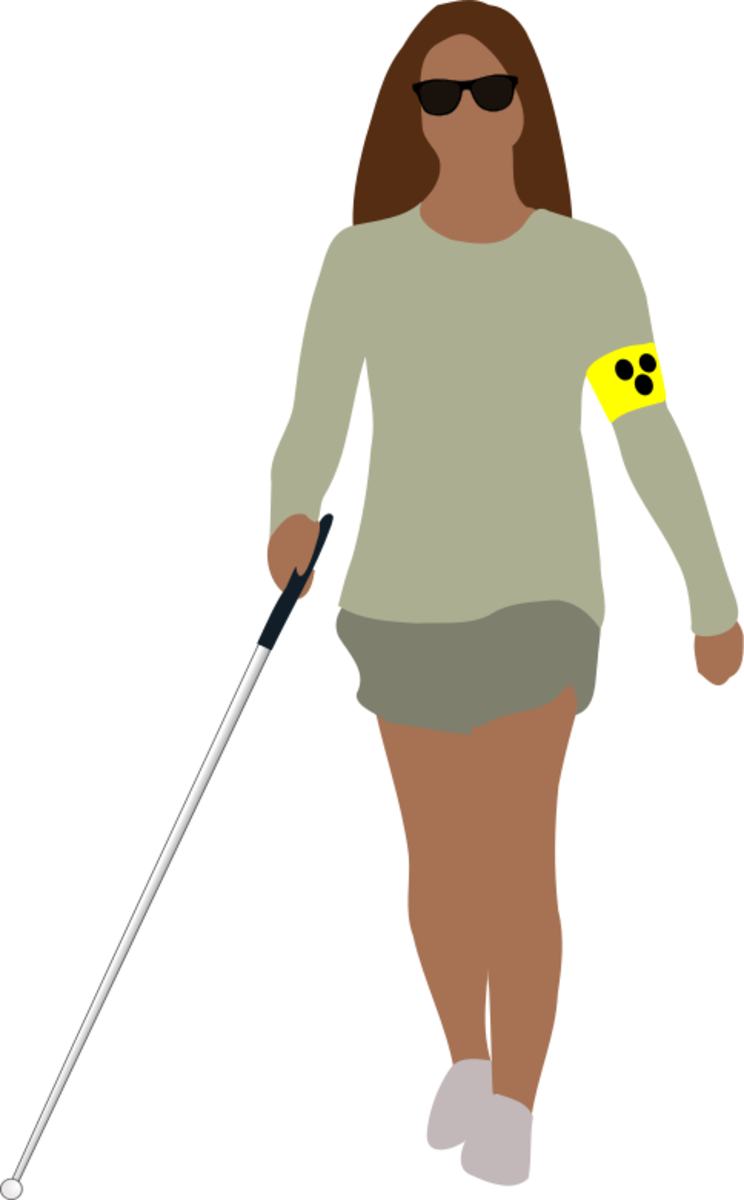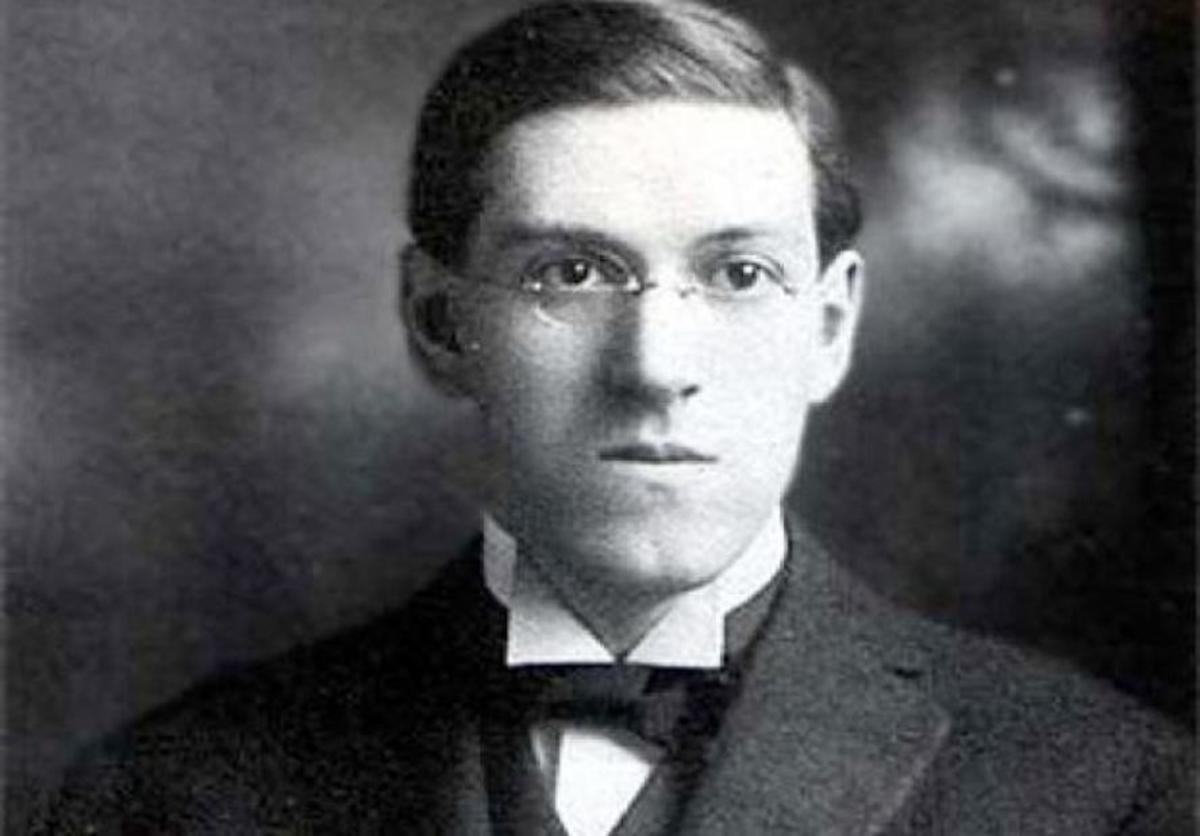Who's Your Literary Role Model?
© B. L. Bierley 2012
During a writer’s group I attended a while back, the topic of contemporary young adult literature was raised which sparked an alarming discourse against the current trend in young adult books for the twelve to eighteen year old demographic. Particularly the work being trashed by one outspoken individual was the Twilight series. I found myself defending popular literature against the classic naysayers who disparage the current movement for the poor life examples being set in modern young adult literature.
Now, before we get started know that I'm focusing on the role models for young ladies in particular here. And I am neither lambasting nor advocating the examples set in current day works for young ladies. It’s a profound issue for some that we show young women and girls in modern literature being swept away by some fantastical being or creature in a romantic way that in reality would be every parent’s worst nightmare. But here’s the hard truth folks: the examples aren’t reality! Some of the most popular titles in young adult fiction today are classified as fantasy science fiction (emphasis on the FICTION)! But there is a hard debate between some that the heroines we present for young females to read about are going the way of the fainting daisies of Edwardian and Victorian society again. The feminist movement demands a strong female. And yet we glorify these types of love stories in classic literature.
Look Closely Into My Crystal Ball
My focus isn’t really on the debate of literary role models per se. That’s one argument that will never be won because you will never get everyone in the world to agree to one opinion on anything! But I would like to highlight a few of our classic stories and their heroines to compare how the examples in our contemporary fiction are no more of a bad influence than many of our classic literature examples. In the classic stories we have girls making much worse choices with realistic disasters impending in many cases. A strong argument could be made for books where the male love interest is an entirely fantasy fictional character the possibility of life imitating art is mostly moot save the parallelisms that could occur. For example, one might argue that a moody, psychotic and abusive boyfriend is much like a blood-lust driven vampire, but the chances of the latter happening are virtually non-existent.
It’s sad that some girls will read these books and sub-textually think that it’s okay to have a dangerous boyfriend who might kill her—even though he loves her and would try his hardest not to do so! Maybe the authors didn’t anticipate the way that context would be pulled from their storylines. But not to read them for fear of a bad example means missing out on the entertainment value of the story as a whole. That debate isn’t new anymore than the arguable examples are. So for further evidence, let’s compare literature past and present.
“That Was Then, This Is Now”
No, I’m not highlighting S.E. Hinton works here, but it worked as a title for my point, so ha! Anyway, in order not to bog down the discussion I’ll try to make my argument with three or four powerful examples. Before making a case for classic over modern, I would also like to point out that several of the books we herald as classics were not received without their share of debasing remarks and criticisms at the time of their initial publication. I’ll give you one particular example that shocked me.
Mark Twain and Jane Austen were authors within the same period of literature, and both of their collective works are considered classics today. Yet Mark Twain outwardly dismissed Jane Austen’s work as being juvenile and not worth the readers’ time. None of this discussion works if you take out the perspective. His work and her work differed both in intended audience and message to the reader. And yet both still have a place in the annals of literary achievement. Jane Austen is heralded long after her death as a forward thinking writer of stories that touch on the truth and nature of human experiences in family, love and life. Her satirical work was as much entertaining as her romantic stories. Mark Twain wrote about things with awareness keener than most people wanted to speak about in the light of day during his lifetime. And yet here in today’s society he is equally lauded and banned. Wonder what Ms. Austen would say to him if they were face to face today?
Another writer who faced criticisms and praise on differing fronts was Charlotte Bronte, who- like her sisters wrote under a male pen name. She prefaced subsequent printings of her work with introductions touting her worthiness in order to gain or cement her credibility as a writer among her contemporaries. One might argue that this was the way it was with female writers of that period, but it doesn’t matter what reason causes the criticism or praise. Even what is considered exemplary literature can and always will have its critics.
Forbidden Love
For my comparative examples, I’ll start with Charlotte Bronte’s Jane Eyre. Here’s a young girl who didn’t have a lot of familial love or influence in her life. A bad relative makes her go to extremes instead of doing the right thing and sending her to another relation who might like her a little. She goes to a school of hard conditions and then loses her only friend in life. But she’s spunky. At barely eighteen she goes to work and meets the brooding Mr. Rochester. Mr. R is a playboy/bad boy of the late 1700’s-early 1800’s. He has an illegitimate child by a French dancer with whom he had an illicit affair. Then he alluded to the fact that he dueled (which is the Edwardian equivalent to drag racing or gang brawling in today’s society). So far our heroine is not on a steady path.
Jane’s love interest is probably ten years (or more) older than our heroine, but yet he falls in love with her. Hmmm, that doesn’t sound unusual to anyone? He tricks her with words, trying to hide his intent, and she is driven to tears when he pretends to be engaged to another woman and hints at sending her away. It’s reverse psychology used against a child. But we don’t focus on it much, because they’re so in love! They get caught out in a storm, heedless of the danger even when an ancient ancestral tree is struck by lightning. When she gives in eventually to marrying him, despite her misgivings and the advice of an older female role model, she finds out that he’s already got a wife!
Jane may not come across as suicidal, but running away from home without money or even a ride is not ideal for survival even today! Then another guy she meets wants to marry her for convenience. He psychologically pressures her until she’s sick, but thankfully she has enough wherewithal and manners to decline him.
Then she thinks she hears Mr. R calling her from miles away. And later he says he thought he heard her too. And we all know that hearing voices that aren’t really there is a sure sign of something being not right in the brain. Her proprietary goodness notwithstanding, this gal isn’t exactly a model of girlhood behavior, but there’s still a powerful novel in there!
The Thin Line Between Love and Hate
Wuthering Heights is the best example of a love-hate relationship that turns out badly that I have ever seen. If the events in this novel were a story on the news today, you’d hear things like, restraining order or psychotic stalker. Obsession was the soup du jour of this gothic romance. How can you not compare the bad examples that are rife in this little tale? Girl meets guy who’s being raised like a dog- worse than a dog. She falls for him despite the scandal and shame of her family mostly because he’s like a cousin or adopted brother to her. The guy isn’t like her, though. He’s rough and mean, and yet his love for her is transcendent. Actually morbidly obsessive is more accurate.
Heathcliff loves Catherine so much he does evil, revengeful things to her offspring when she marries another man and then dies. And then he pines for her until he dies on a damp moor next to her grave where he believes her spirit has willed him. Would you recommend your children to behave in this fashion? Didn’t think so. And yet we tout it as a classic just because it’s old and well written. Come on, people. Just because the writers are young and the wording more twenty-first century doesn’t mean the work doesn’t have merit if we teach this kind of dark example as classic lit!
To Be (a Classic) or Not To Be
Next, I’m going to poke the sleeping bear of Shakespeare. He is arguably either the most talented writer of his time or a plagiarist. His characters did all sorts of things. Shakespeare went in unapologetically with no holds barred! He touched on topics like interracial couples, cross-dressing, acting crazy to blackmail a parent, going crazy and driving a girlfriend along for the ride, suicide, murder and let’s not forget the oedipal complexes that floated all around the works! There was even some forced cannibalism and infanticide! Sure, his love stories were incredible, but one was incredibly tragic and yet it’s the most time-honored romance in the world! Romeo and Juliet—I mean (definitely not Titus Andronicus). But I ask you, did we read that in high school English Lit class our freshman year and then go find a guy to drink poison for us and then stab ourselves over his still-warm corpse? No! So how can we be such hypocrites when reviewing today’s literature, I ask you?
My Point in Summary
We have all read classic works, studied them and enjoyed them. And yet I wouldn’t recommend any of the behavior exhibited therein to any young woman reading them as an example of how to behave as a whole. Neither would I want my daughter DaVelma to emulate the Twilight heroine. That girl gets so gone for a fellow that she sinks into health-debilitating nightmares and depression when he moves away. Nor would I hope for example in Ziggy the way the young man pressures the heroine to marry young. But I would tell them to read the exciting and loving tale with my blessing.
I like classic literature, and I read contemporary literature. I write contemporary literature, too. I would probably expire on the spot if anyone ever said something I had written was a classic (oh to dream). The point here is that a love story is not a “how to” for anyone no matter which book or era of literature you pick. So read Twilight if you like that sort of fantasy novel. The story in those books is essentially the same as Romeo and Juliet. The kids from different families (or worlds) meet, they form a forbidden attachment, they fall in love despite the setbacks and obstacles, and then they marry young. The only difference is that the Twilight lovers survive—or—die and live happily ever after with a convenient immortal baby. Okay, sci-fi isn’t Shakespeare! But still, 75 million readers can’t all be idiots, can we?
The real point here is that messages in books aren’t supposed to be guidelines for our young people to follow at will. It’s not the books’ fault, though. It’s ours as parents to direct our children as to what they make of any story they read. Stories are human, be they fiction, fantasy or memoir. But the example I make here is a parent taking a work and discussing it with his or her child to make sure they understand what value lies within. Do I think Ziggy will read the Harry Potter series and decide to become a practicing warlock? No, of course not, so long as I make him understand that the stories are an imagination gifted to us by a brilliant writer for all to enjoy. It’s not what our children are reading, folks. It’s what we teach them about reading that counts! We are all Literary Role Models.




